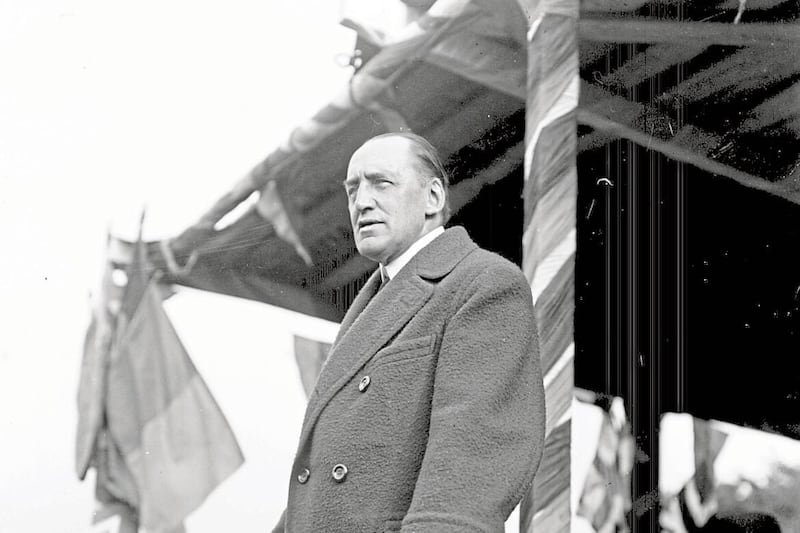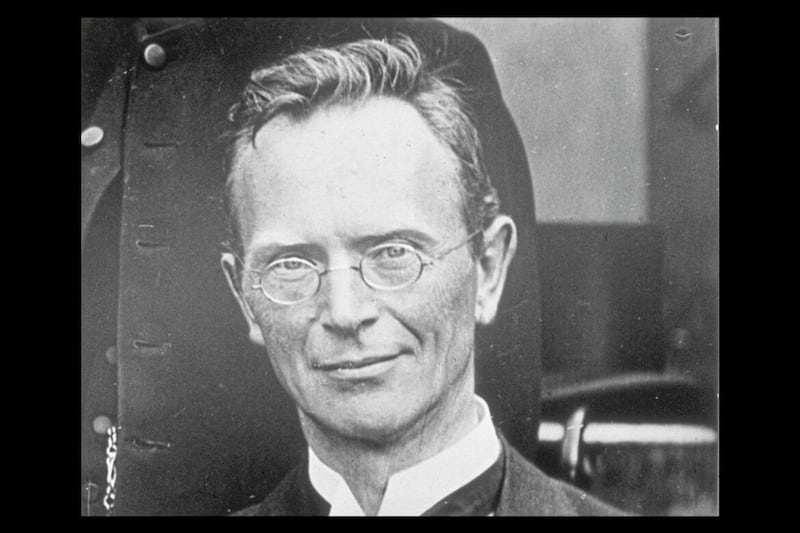RTÉ has launched a helpful podcast, Our Lives in the North, presented by Derry-born journalist Una Kelly. It aims to show people in the south what life is really like up here – beyond flags and sectarianism.
The first episode examined the NHS, which has long been cited as the main reason we in the north are better off than our neighbours. But free healthcare is only a benefit if it works, and for the more than half a million people languishing on waiting lists which are twice as long as in the south, it doesn’t.
Future topics will include education, housing, paramilitaries, ethnic minorities and the cost of living.
- Our shocking peace walls and how others see us - Mary KellyOpens in new window
- Don’t knock the BBC over Kamala love-fest – the media is always attracted to the new and fresh – Mary KellyOpens in new window
- Mary Kelly: Edwin Poots is right about reaching out – but he needs to persuade voters in loyalist areas tooOpens in new window
Maybe a lot of us up here should also be tuning in to see how many of our sacred cows are not what they’re cracked up to be. And maybe BBC NI could do a similar programme, examining life in the south?
They probably daren’t, given the criticism from the usual suspects every time they cover a southern story or sporting event.
It might seem a bit mad, for a country this small, but after 100-plus years of partition, it’s inevitable that there’s a degree of mutual incomprehension for many of us.
During the worst of the Troubles, Dublin represented something of a haven. It was where we went for weekends to a cheapish B&B as near the city centre as we could afford. It meant late nights out in lively bars, followed by burgers in Captain America’s, shops where we continued to open our handbags at the door by force of habit. It was where you could go to be a normal teenager.
On a school bus trip aged 12, I remember feeling a twinge of delight at seeing a Tricolour flying from a state building. They were only rarely seen in the north, either in a republican ghetto or on top of a loyalist bonfire.
It might seem a bit mad, for a country this small, but after 100-plus years of partition, it’s inevitable that there’s a degree of mutual incomprehension for many of us
On the way home, our bus was stopped and searched by the UDR, to a chorus of “Up went Nelson”, from the rowdies at the back. The teachers were aghast and punishments were promised, but never materialised.
Until we got an RTÉ aerial, I had no idea who the Riordans were, or why the Late, Late Show was so important to Irish society. I thought the Angelus on TV was a bit strange and the Rose of Tralee still remains an object of wonder – ripe for satire in Father Ted’s ‘lovely girls’ contest – but still hugely popular as a nod to the Irish diaspora and the impact of immigration.
Our unionist neighbours were convinced the Republic was a priest-ridden dump where Protestants were forced to convert on marriage, and its pot-hole ridden roads were not safe for our motors, until membership of the EU changed the picture.
Looking back at RTÉ’s excellent Reeling in the Years, you see an Irish society, led by grumpy de Valera, deferential to the Catholic Church, lauding clerics like Bishop Eamonn Casey - later revealed as a sexual predator - and Fr Michael Cleary, a hypocrite who had a secret family with the housekeeper he ‘married’. That country no longer exists, and thank God for it.
****
AFTER the horror stories of racist attacks on both sides of the island, including the tragedy of Nigerian care worker, Anu Okusanya, who died after fleeing a gang of youths who had previously attacked her Newry home, it was a good to hear a positive story.
Several hundred people marched though the town of Borrisokane, Co Tipperary, and succeeded in reversing a decision by the International Protection Accommodation Service (IPAS) to move up to 19 families who had been granted asylum status after living there five years.
The IPAS said the families are no longer entitled to stay as their accommodation is needed for new applicants and they must move to Birr, Co Offaly.
But local people said the newcomers had integrated well with the community and their children were attending local schools and sports teams. More of this please.









